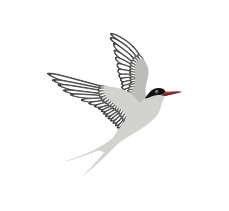Chope: A Technological Twist on Restaurant Reservations (Part 2)
Arrif Ziaudeen undoubtedly took a huge plunge as he ditched his finance job to create Chope, the trailblazing restaurant reservation app that made our lives just that much easier. But like every startup in history, he by no means had a smooth journey. In the second part of our chat with Arrif, we dove into the trials and tribulations that every startup faces, and how him and his team overcame them to create the Chope we know and love.
How did you calm any doubts?
I guess I didn’t calm it. It’s that old Churchill thing, “when you’re going through hell, the best thing to do is to keep going.” So that’s what I did. I didn’t calm myself, I got more nervous, did more stuff, tried to build the company and I think as you go along and get larger, it sort of stabilises. But there’s nothing much you can do aside from taking a few deep breaths and get on with it.
What spurred you on when things got tough?
I think the two things that pulled us together were the team and some of the mentors I had built relationships with over the years.
What do you do when everything seems to go wrong?
The team. There are times where you give up, go back to the office and think, “we lost this client”, “we didn’t close this deal” or whatever. But then you sort of just throw up your hands and say, “let’s go out and get drinks.” Then you realise “we’re all in this together. We’ll wake up again and we’ll go and do something else or figure out another way to do this”. The point is it’s not over until all of us decide that it’s over.
Within the startup scene, if an idea isn’t necessarily working out, it’s about tweaking, amending, editing, even pivoting, rather than quitting?
Yeah, that’s exactly right. You’re never ever going to start up with the perfect iteration of your idea. There’s always going to be things that you learn along the way. This means by definition, when you first start out its going to be full of problems and full of things you’re doing wrong.
I guess the two ways to face that is to say either, ‘okay its wrong, so we give up’, or to say ‘okay, its wrong. What’s wrong? Let’s fix that and try again and see what happens.” Maybe you were pitching it at too high of a price, maybe your materials weren’t pretty enough, maybe you didn’t send the right salesperson…just try again.
In the world of startups, do you think there’s a point where a company should just quit?
It’s not for the market to tell you if this idea is going to work, or to tell you to stop. It’s for you to tell yourself [that].
What was the most useful piece of advice you’ve received?
I had built relationships with mentors, and like any entrepreneur worth their salt, they’ve been through their ups and downs. When things are rough, I found the best thing is to keep going, and when you come out on the other side, you’ll realise it was a defining moment, rather than the cause of your failure. Like one of them used to say, “you can only get success from the jaws of defeat.”
If you hadn’t started something like Chope, where do you think you would have ended up?
I don’t know. I think it’s easy to take a straight line and assume that’s where life would have gone, but the reality is in the last 5 years, anything could have happened. I could have gone into another startup.
Do you ever think about what could have been if you had chosen a different path?
I think it would have always involved tech. I feel that tech is the new frontier, and if you’re not involved in that in some way, you’re missing out on the gold rush. But beyond that, I don’t know. I’ve never really thought too hard about what could have been. Is it worth sitting around wishing you had bought yesterday’s lottery numbers? What’s the point? I wish I had started WhatsApp though, how about that?
Featured Image Source: Michaela Loheit
